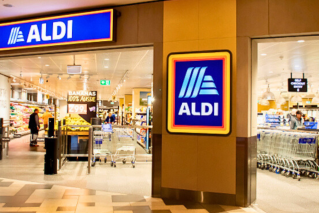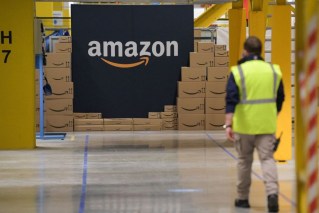Government must cough up for public interest journalism: Allan Fels


Google has agreed to pay several media companies to use their content. But Allan Fels says the government must do more. Photo: TND
The federal government must allocate more funding towards public interest journalism and cannot rely on Google and Facebook to solely pick up the tab, according to a former chair of the ACCC.
Hours after The Age and Sydney Morning Herald revealed Nine Entertainment had struck a deal with Google worth $30 million a year, former competition regulator Allan Fels told The New Daily the government had to cough up more of its money to fund public interest journalism.
“The bargaining code alone won’t solve the problem, and therefore further funding of public interest journalism is needed,” Professor Fels said.
The former chair of the ACCC said the federal government had already established a public fund for this purpose but noted it suffered from insufficient funding and only helped a small group of publishers.
“It needs to be bigger and pick up more players,” he said.

Former ACCC chair Allan Fels says public interest journalism needs more government support. Photo: AAP
Now serving as the chair of the Public Interest Journalism Initiative, Professor Fels said the government’s proposed media bargaining code had clearly brought Google and Facebook to the negotiating table.
But he said it was too early to say whether the deal struck by Nine Entertainment was a good outcome for the media company.
“I find it quite difficult to judge that $30 million number … [but] it’s a good sign that Google are making serious offers,” he said.
News of the agreement came just two days after Seven West Media announced a similar deal with Google that was also reported to be worth $30 million a year.
Seven told the ASX it had struck a long-term partnership with Google to provide news content to Google Showcase, a product displaying links to news stories that launched locally in February and can be found via the Google News app.
Seven West Media chairman Kerry Stokes said the partnership was a “great outcome” for both parties and recognised “the value, credibility and trust of our leading news brands and entertainment content across Seven and West Australian Newspapers”.
But like Professor Fels, Professor Amanda Lotz from the Queensland University of Technology said it remained to be seen whether the deals were good value for money for Seven and Nine.

Seven West Media was the first big news company to sign up to Google Showcase.
Professor Lotz said it was unclear what proportion of the $30 million offered was in advertising credits and what proportion was in cash, with past experience in the US suggesting a significant chunk would come in the form of the less-desirable credits.
She told The New Daily there was also no way of knowing whether Google Showcase would have a positive impact on Australian journalism.
“You can imagine a scenario where being on there [leads to more] clickbaity stories,” she said.
“Supposedly the whole point of the mandatory bargaining code – and the circus surrounding it – was to try and shore up funding specifically for public interest journalism in Australia. But it’s very unclear whether this contributes in any substantive way to that.”
Professor Lotz said the problems facing the Australian media industry were too big for the media bargaining code alone to fix.
According to an analysis conducted for the ACCC’s Digital Platforms Inquiry, six out of every 10 dollars spent on advertising in Australia went to media companies in the year 2000.
But this figure had fallen to less than one in eight dollars (12 per cent) 17 years later.

Josh Frydenberg says the flurry of recent deals shows the proposed legislation is helping. Photo: AAP
Professor Lotz said the money offered by Google and Facebook was simply not enough to address this massive fall in revenue, which meant publishers either had to switch to a subscriber-based business model or seek alternative sources of funding.
Professor Lotz said companies like the New York Times had successfully changed models and now earned more money from subscribers than advertisers.
But smaller publishers focused on local and community news would struggle to emulate them as their content was unscalable and advertisers had found more efficient ways of reaching their customers.
Public interest journalism was therefore at risk and more government funding would help, she said.
“If we don’t have advertisers footing the bill for those organisations any more, where is the journalism that democracies rely on going to come from?” Professor Lotz asked.
The New Daily has signed up to Google Showcase








